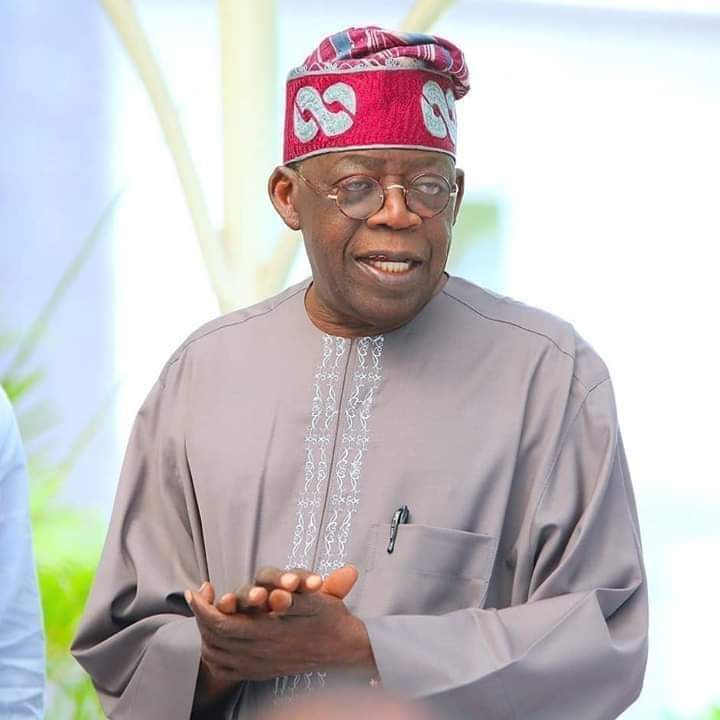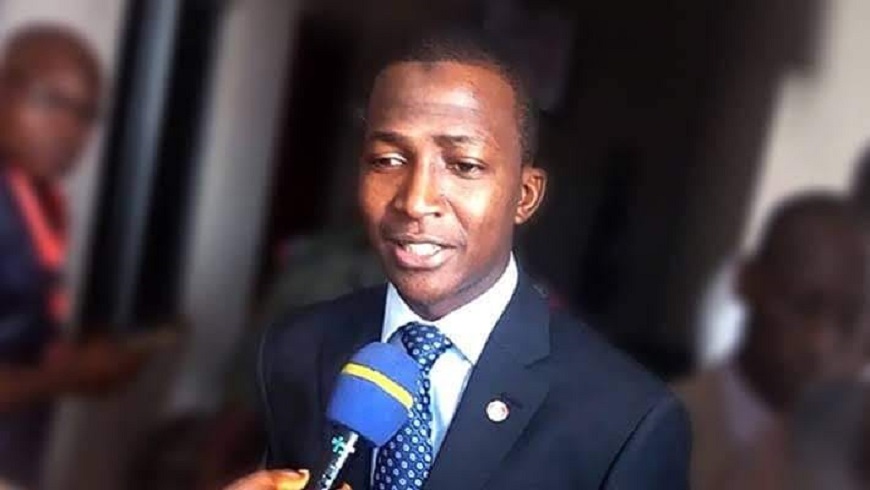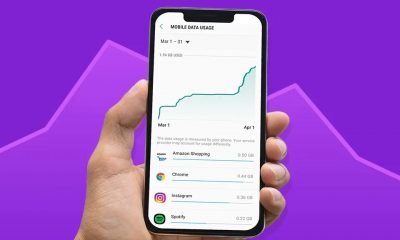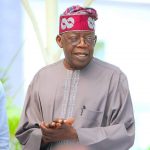General
FCCPC Seals Illegal Consumer Protection Group in Abia

By Adedapo Adesanya
The Federal Competition and Consumer Protection Commission (FCCPC) has sealed the premises of an entity operating under the name Community Crime Prevention Initiative of Nigeria (CCPIN) in Aba, Abia state.
In a statement on Thursday, Mr Ondaje Ijagwu, FCCPC’s director of corporate affairs, said the enforcement operation took place on Wednesday at Number 214 Aba-Owerri Road, in collaboration with law enforcement agents.
Mr Ijagwu said FCCPC’s action followed credible intelligence that CCPIN was falsely claiming affiliation with the commission and misleading the public by representing itself as an “authorised consumer protection NGO”.
“The entity had issued public notices alleging joint surveillance operations with FCCPC and was soliciting consumer complaints through unauthorised telephone lines,” the statement reads.
“During the operation, the operator of the facility, Dr Onwuka K. Okorie, was arrested on-site and is currently in police custody at World Bank Police Station, Abayi-Aba, Abia State, pending further investigation and prosecution.
“A number of exhibits bearing FCCPC’s name, logo, and false enforcement materials were recovered from the premises.”
The official said the commission has no affiliation with CCPIN and does not authorise or partner with the group or any similarly styled organisation for enforcement or consumer protection operations.
He added that FCCPC does not delegate such enforcement powers to NGOs, private entities, or individuals without formal legal authorisation.
Mr Ijagwu advised the public to disregard any announcements, sealing notices, or consumer-related campaigns issued by CCPIN or its representatives.
“To verify any enforcement or communication, members of the public can contact the Commission through its hotlines: 08056002020 and 08056003030. Official FCCPC activities and communications can also be verified via fccpc.gov.ng or social media handles (@fccpcnigeria),” he added.
The recognised consumer protection body also reaffirmed its commitment to operating with the highest level of transparency while ensuring consumer protection and market integrity.
General
2027 Elections: Vice President Shettima’s Critics and Political Detractors

By Abba Dukawa
President Bola Tinubu and Vice President Kashim Shettima are indeed on the same ticket, representing the All Progressives Congress (APC). They ran together in the 2023 presidential election. However, there’s speculation about whether Shettima will remain Tinubu’s running mate in 2027 general elections.
According to reports, there are discussions about potential changes to the ticket for the 2027 presidential election, with some suggesting other northern minority christian or a politician from north West could replace Shettima. Despite this, there’s no official confirmation on the status of their joint ticket beyond the current term.
Clearly, his role diverges significantly from that of his predecessors, including Atiku Abubakar, Prof. Yemi Osinbajo, and Goodluck Jonathan. Despite being afforded some opportunities since the government’s inception, they haven’t been substantial enough to generate significant support or recognition.
“I struggle to understand why Shettima hasn’t been utilized to his full potential in this administration. For too long, he’s been consigned to ceremonial duties, only being acknowledged during high-profile events. Why isn’t he permitted to function similarly to his predecessors, given his vast experience? Is it due to external factors constrained his role? Furthermore, why does the economic team, led by the Vice President, appear to have a limited impact on shaping national economic policies?”
Shettima is indeed an exceptional politician, renowned for his astute understanding of politics and leadership. His ability to navigate complex political landscapes and build consensus has earned him respect from various quarters.
He has achieved remarkable success, winning elections three times and serving as Governor of Borno State for two terms, spanning eight years. He later became a Senator and eventually, the running mate to President Tinubu.
Notably, Shettima demonstrated exceptional leadership in rebuilding Borno after the devastating impact of terrorism. His experience, political acumen, and administrative expertise are unparalleled, setting him apart from others vying for the Vice Presidency.
As a seasoned politician with a deep understanding of the corridors of power, Shettima has consistently displayed high emotional intelligence, remaining composed amidst attempts to create tension between him and the President. Observations of his daily schedule reveal a demanding workload, yet he navigates it with ease, a testament to his work ethic honed during his time in Borno.
He has represented the President at prestigious forums like the World Economic Forum contributing to the influx of Foreign Direct Investments (FDIs) into the country. Also at the United Nations General Assembly showcasing his intellectual prowess.
Those vying for his position will likely be overshadowed once again by Shettima’s exceptional qualities. Despite their efforts to create tension by spreading rumours of rifts between him and the President, they seem unaware that in the realm of politics, loyalty and close alliances often take precedence when power dynamics are at play.
Amidst the negative narratives, Shettima has demonstrated remarkable emotional intelligence, showcasing his understanding of power dynamics and adapting seamlessly to various situations. His ability to navigate complex political landscapes is a testament to his experience and skill.
His detractors want him to challenge his boss, contest against him, and force him to plead not to run. They’d also have him prioritize cronyism, privatize national assets at throwaway prices, and perpetuate economic policies that benefit a select few at the expense of the many, exacerbating poverty and economic hardship.
Sometimes in early April, there was a publication by some blogs alleging that armed military units have barricaded the vice president from accessing the presidential villa. Nigeria’s VP has denied reports and said the claim is far-fetched and detached from reality.
His team attributed such misinformation to a lack of understanding of the Nigerian government’s inner workings, urging the public to disregard the malicious publication and advised the media to rely on credible sources, approaching sensational claims with caution.
With his exceptional ability to navigate complex situations and build strong relationships, Shettima has consistently demonstrated a high emotional intelligence quotient. His calm demeanor and thoughtful approach have earned him respect and admiration, setting him apart as a leader who truly understands the intricacies of power dynamics.
In another surprising twist in the political landscape, President Tinubu’s posters and billboards are currently displayed in various parts of Abuja, including Airport Road and the Central Business District. Campaign posters featuring his image have been circulating widely in Abuja, noticeably without Shettima’s picture. The President emphasized that until the Independent National Electoral Commission (INEC) sets the 2027 election timetable, he has not endorsed or authorized any campaign activities through any media channel.
However, the Presidency has dismissed rumors of a rift between the two leaders, attributing the false narratives to individuals seeking to create unnecessary tension. President asked his supporters to halt their re-election campaign efforts to avoid breaching INEC’s rules.
Naturally, the corridors of power often harbor mischief-makers. The relationship between Presidents and Vice Presidents in Nigerian politics has always been delicate, partly because the constitution doesn’t outline any independent responsibilities for the office of Vice President or Deputy Governor.
Under the 1999 Constitution, the Nigerian President wields significant power, akin to a constitutional monarch. As the Head of State, Chief Executive of the Federation, and Commander-in-Chief (Section 130(2)), the President serves as the country’s chief economic manager. Notably, while the Constitution vests legislative powers in institutions (Section 4) and judicial powers in institutions (Section 6), executive powers are vested directly in the President (Section 5).
In my humble opinion, attempts by certain political interests to reignite religious tensions ahead of the 2027 general elections are likely to fail. The opposition to Muslim-Muslim tickets was more intense in 2023 than it is now. Those who seek to vilify such tickets or imply that they’re an attempt to Islamize the country will be disappointed, as neither the President nor the Vice President has ever called on Christians to convert to Islam.
I’m confident that these tactics will backfire again in 2027, as the election will pit pragmatic, inclusive politics against the narrow, divisive agendas of some politicians. I hold Shettima in high esteem; he’s an exceptional politician with a deep understanding of politics and leadership.
Despite detractors’ efforts to drive a wedge between the President and the Vice President, he remains steadfast in promoting the administration’s agenda on every platform. Through his local and international engagements, he has successfully positioned Nigeria as a proactive contributor to global development and security initiatives, attracting foreign investment and fostering economic cooperation. His insights are truly transformative and a valuable asset to the administration.
General
Tinubu Sees Afam II Power Plant Driving Energy, Industrial Agenda

By Adedapo Adesanya
President Bola Tinubu says the newly commissioned 180-megawatt Afam II Power Plant in Rivers State will be a critical milestone in Nigeria’s energy and industrial transformation agenda.
The project, executed through a partnership between Crescendough Nigeria Limited (CNL) and Sahara Power Group, is expected to significantly enhance Nigeria’s power generation capacity, providing electricity to homes, businesses, and industries.
Speaking at the commissioning ceremony in Oyigbo Local Government Area on Wednesday, President Tinubu emphasized that the completion of the plant within 16 months demonstrates the success of his administration’s policies in fostering private-sector-led infrastructure development.
“This project is proof that with collaboration, tenacity, and commitment, we can overcome our energy challenges,” the President said.
“The Afam II Plant will not only add 180MW to the national grid but also stimulate economic growth, empower businesses, and improve healthcare and education through reliable electricity,” he added.
He reiterated his administration’s Renewed Hope Agenda, charging the Minister of Power, Mr Adebayo Adelabu, and other stakeholders to work together to ensure nationwide power stability.
On his part, the Sole Administrator of Rivers State, Mr Ibok-Ete Ekwe Ibas, praised President Tinubu for creating an enabling environment for investments, noting that the project aligns with the state’s long-term vision to expand energy infrastructure beyond oil and gas.
“This plant is a testament to what visionary leadership and private-sector collaboration can achieve,” Mr Ibas said. “Beyond power generation, it has created jobs and upskilled youths in the Afam community, setting a precedent for future projects.”
He also commended the host community for their cooperation, stating that peaceful engagement was key to the project’s success.
The Group Managing Director of Sahara Power Group, Dr. Kola Adesina, highlighted that the company remains Nigeria’s largest private-sector electricity provider, contributing about 20 per cent of the nation’s power supply. He affirmed that the Afam II Plant reinforces Sahara’s commitment to sustainable development.
Meanwhile, the Minister of State for Petroleum Resources (Gas), Mr Ekperikpe Ekpo, applauded Rivers State’s sustained investments in energy infrastructure since 2011, which laid the foundation for the Afam II project.
The Afam II Power Plant is expected to play a crucial role in reducing Nigeria’s electricity deficit, supporting industrialization, and improving living standards. President Tinubu assured Nigerians of more reforms to attract further investments into the power sector.
“We will continue to enforce policies that make Nigeria a prime destination for energy investments, both local and foreign,” he declared.
General
Ex-EFCC Boss Abdulrasheed Bawa Exposes Fuel Subsidy Corruption in New Book

By Adedapo Adesanya
The former chairman of the Economic and Financial Crimes Commission (EFCC), Mr Abdulrasheed Bawa, has documented corrupt practices used to siphon public funds under the guise of fuel subsidy payments in his new book.
Mr Bawa revealed this in his soon-to-be published book titled The Shadow of Loot & Losses: Uncovering Nigeria’s Petroleum Subsidy Fraud, according to a statement.
The book exposes Nigeria’s multi-trillion Naira fuel subsidy scandal, unraveling the inner workings of one of the country’s most pervasive financial crimes.
Mr Bawa, drawing from his firsthand experience as a key investigator on the EFCC’s special team that probed the 2012 subsidy fraud, revealed the complexity, and audacity of the corrupt schemes used.
The former head of the anti-graft agency chronicled how billions of Naira were embezzled through ghost importing and over-invoicing as companies submitted claims for fuel that was never imported or inflated shipment volumes to receive excessive subsidy payouts.
Another form adopted by the perpetrators of the scandals, as revealed in the book, is the manipulation of bills of lading, where fraudsters exploited international price fluctuations to claim higher subsidies, by altering shipping documents.
Other sharp practices exposed by Mr Bawa, who served as the EFCC chairman from 2021 to 2023, are round-tripping, double claims, diversion, and smuggling.
“Single shipments were often used to obtain multiple subsidy payments. Subsidised fuel was frequently diverted to black markets or smuggled out of Nigeria for profit.
These practices, Mr Bawa explained, were boosted by forged documents, weak regulatory oversight, and systemic collusion between corrupt government officials and private sector actors.
“The Shadow of Loot And Losses is not just a chronicle of fraud; it is a call to action — a demand for transparency, accountability, and reform in Nigeria’s public finance management, especially in the oil sector,” said Mr Bawa.
Mr Bawa was appointed EFCC Chairman by former President Muhammadu Buhari in February 2021. At the time, he was the youngest person to head the agency and was seen as part of Mr Buhari’s continued anti-corruption agenda.
However, his tenure quickly became controversial due to allegations of corruption, abuse of office, and the continued detention of suspects without trial.
On June 14, 2023, Mr Bawa was suspended by President Bola Ahmed Tinubu. The official reason cited was the need to allow for a proper investigation into allegations of abuse of office during his tenure.
Following the suspension, Mr Bawa was invited and detained by the Department of State Services (DSS) and was held for 134 days.
Reports alleged that he was being investigated for alleged misconduct involving high-profile corruption cases, selective prosecution, and issues with transparency.
Mr Bawa’s later resigned, raising questions about the credibility and impartiality of Nigeria’s anti-corruption institutions, especially given that similar controversies surrounded his predecessors, like Mr Ibrahim Magu.
-

 Feature/OPED5 years ago
Feature/OPED5 years agoDavos was Different this year
-
Travel/Tourism9 years ago
Lagos Seals Western Lodge Hotel In Ikorodu
-

 Showbiz2 years ago
Showbiz2 years agoEstranged Lover Releases Videos of Empress Njamah Bathing
-

 Banking7 years ago
Banking7 years agoSort Codes of GTBank Branches in Nigeria
-

 Economy2 years ago
Economy2 years agoSubsidy Removal: CNG at N130 Per Litre Cheaper Than Petrol—IPMAN
-

 Banking2 years ago
Banking2 years agoFirst Bank Announces Planned Downtime
-

 Sports2 years ago
Sports2 years agoHighest Paid Nigerian Footballer – How Much Do Nigerian Footballers Earn
-

 Technology4 years ago
Technology4 years agoHow To Link Your MTN, Airtel, Glo, 9mobile Lines to NIN




















